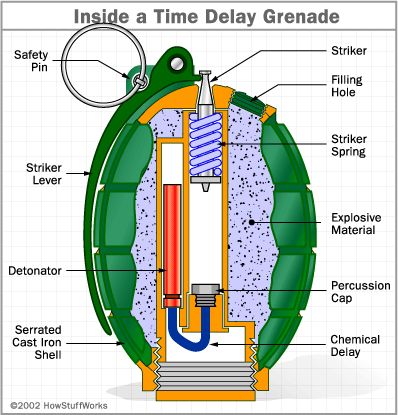
One of the techniques employed to delay or ease the foreclosure problem has been to place a moratorium on foreclosures. I for one didn’t understand the concept. I still don’t. Usually the delay is 3 to 9 months.
Is that enough time to allow the homeowner to get back on their feet and start making payments again?
The economy is eroding (and now officially a 1-year recession), unemployment is still rising and credit is still frozen. For many it would seem to be an illusion or false hope. To some of course, the delay to keep lenders at bay is helpful and effective.
It is sort of ironic (I am seeing irony in just about everything these days) that delaying the foreclosure process was necessary by many who delayed the process (of paying for things).
Julie Satow at The Daily Beast (a terrific new Tina Brown – created site) brings us evidence of the false-positive that is foreclosure moratoriums in her article: New York’s Impending Real Estate Doom.
>Back in August, state legislators in Albany set a 90-day freeze on foreclosures that’s created a backlog of foreclosure filings. The 90-days are up next month. Banks will be bringing foreclosure filings “by the wheelbarrow,” said one court officer in Queens, where the number of filings dropped to just 60 per week from a rate of 150 per week before the law took effect.
California, Florida and Connecticut are proposing moratoriums while Massachusetts already has one.
>One of the first to enact a foreclosure delay was Massachusetts. It set a three-month freeze in May, creating a backlog in foreclosures that built up to August. In the end, foreclosure filings ballooned 456% between August and September, according to RealtyTrac, a site that tracks foreclosures nationally.
It seems to me that a delay, while well-intentioned, doesn’t do anything but compress more properties into foreclosure at the end of the moratorium, ultimately creating more listing inventory at the same time, placing even more distress, ultimately, on property values.
There is some speculation that the foreclosure phenomenon in California is starting to ebb, perhaps because they have been seeing heavy activity for nearly two years.
And yes, like construction permits, demolition permits are plummeting in New York.
And yes, we are now realizing that we have been in a recession for a full year (one of the longest since the Great Depression) and we haven’t yet seen two consecutive quarters of negative GDP growth. Apparently rising unemployment, falling real personal income, falling industrial production as well as falling wholesale and retail sales declines somehow reflected a weaker economy. Call me crazy.
Aside: Noted economics blogger Tanta passed away on Sunday. She was a terrific writer for one of the best financial/econ blogs out there, Calculated Risk. Cancer has hit close to home in my family and it is never fair. In fact, it sucks.
4 Comments
Comments are closed.


Jonathan, you’re right on every point! Without a miracle, huge foreclosures are inevitable. The 2 year comparison to California is scarey, since NY is at least a year behind.
The only hope is that this economy is the peoples’ ultimate “Bush Bash” and that the course will change when the new administration takes charge. It’s worth a wish…md
“…we haven’t yet seen two consecutive quarters of negative GDP growth. Apparently rising unemployment, falling real personal income, falling industrial production as well as falling wholesale and retail sales declines somehow reflected a weaker economy.”
I have no idea who manufactures these definitions, but obviously there is a willingness by someone to to re-define “recession.”
If whomever it is who makes defintions were to look at the prosperity years intervening between March of 2001 (the beginning of the last mini-recession), I suspect it would be discovered that absent the FED policy of stimulating consumer confidence through home equity loans and exotic real estate financing that recession never ended. It was buried and lived on.
Thanks for emphasing the idiocy of the moratorium on foreclosures. This is about jobs, well-paying jobs not just busy work.
As a California appraiser I can assure you that things are not about to end. November was out of control with REO’s. Prices are back to 2001 prices, in most cases lower. Things are getting much worse out in the trenches.
The real estate industry has indeed taken a severe body blow and there is likely further pain to be inflicted. There is virtually nowhere to hide. The real estate industry has been relatively responsive to the economic downturn. But just as the financial industry has been given enormous attention by the federal government, the real estate industry deserves and badly needs such attention. It seems that we may finally be getting some help, hopefully not too little too late. NAR and others have been making some good suggestions and the Congress needs to demonstrate greater leadership and creativity in addressing the real estate downturn and helping resolve the numerous related real estate issues.